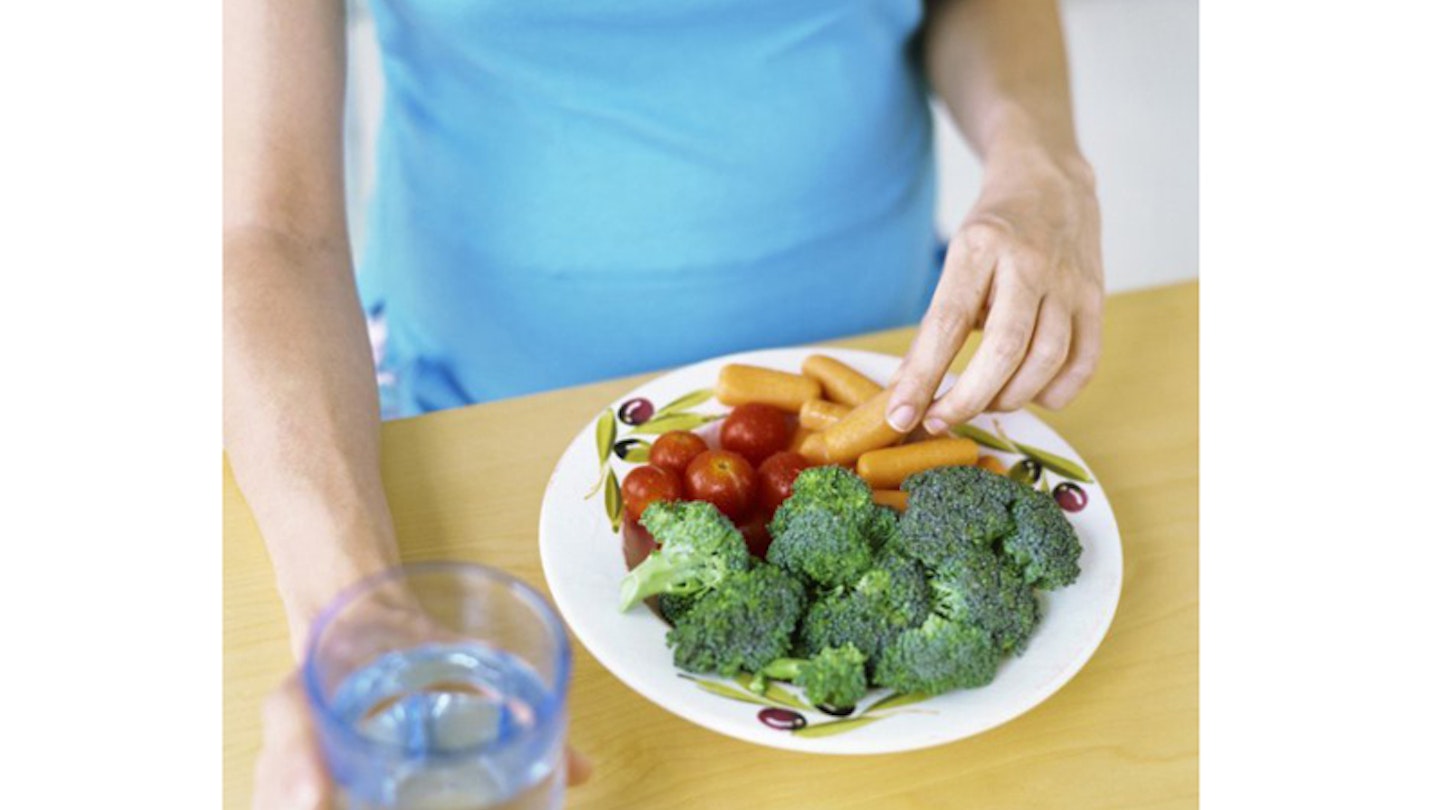With cold and flu season soon approaching, now is the perfect time to start building up your immune system. And as a mum-to-be, strengthening your body’s defences can help build up your baby’s too – so everyone wins!
Nobody looks forward to catching winter coughs and colds but for pregnant mums, it’s even more important to start strengthening your defences early.
'Pregnancy suppresses the body’s immune system (to ensure the fetus isn’t rejected as something foreign) which means your body is less able to fight off infection and illnesses, making it more susceptible to colds and flu,' says leading UK nutritionist Dr Marilyn Glenville, author of Getting Pregnant Faster.
While regular exercise and getting a good night’s sleep can help boost your immunity, what you eat can make a big difference too. In addition to taking prenatal supplements (such as folic acid) pregnant women are advised to eat plenty of fruit and veg - and getting your five a day is even more important as winter approaches. 'Fresh fruit and vegetables are the best source of powerful antioxidant vitamins and minerals, which help boost the body’s natural defences against infections,' says Dr Glenville.
If the idea of comfort food and puddings are more appealing than salads and fruit, get creative with warming vegetable soups and stews. You can still enjoy hearty warming dishes – just make sure to pack them full of colourful fruit and veg.
If you’re thinking about taking a vitamin and mineral supplement, take one specially formulated for pregnant women as it will contain beta-carotene rather than vitamin A. (Try NHP’s AnteNatal Support from good health food shops or www.naturalhealthpractice.com). 'Ordinary multi-vitamins can contain too much vitamin A – which has been linked with a risk of birth defects,' says Dr Glenville. 'You also want most of your antioxidants to come from foods containing fibre and other nutrients, and only use the supplement to support your diet.'
Snack on almonds
Nuts are packed with health benefits – but almonds are the ones to choose if you want to keep colds and flu at bay, according to a recent Anglo-Italian study. The skin of the nut contains naturally-occurring chemicals which help white blood cells detect viruses, as well as helping to prevent the virus from spreading. The study authors suggest that eating a handful of almonds regularly could help ward off viruses and speed up recovery for those already infected.
Almonds are also rich in manganese, riboflavin, and copper, which aid in energy production, as well as calcium and phosphorus, which strengthen bones and teeth and phenylalanine, a chemical that aids healthy expansion of the brain’s functions. 'Almonds are a good natural source of folic acid, vital for the healthy development of a baby’s brain and nervous system, helping to prevent neural tube defects like spina bifida,' says Dr Glenville.
Fresh fruit and vegetables are the best source of powerful antioxidant vitamins and minerals
Get the sunshine vitamin
Pregnant women are advised to start taking vitamin D supplements as soon as they know they are expecting – and continue while breastfeeding. As well as being essential for good health, the ‘sunshine’ vitamin is thought to help ward off colds and flu by boosting the immune system. Researchers in Denmark found that vitamin D plays a key role in the complex process whereby T cells become 'primed' and ready to attack invaders and fight infection.
As most of us don’t get much sunshine in winter (especially those living in Scotland) it’s important to top up your level by eating foods rich in vitamin D, such as oily fish and eggs. The NHS advises pregnant women to eat two servings of fish a week – but steer clear of raw seafood (such as oysters or uncooked sushi).
The majority of fish contain traces of methylmercury - a metal believed to be harmful in high doses to the growing brains of fetuses – so it’s best to limit your consumption to about 12 ounces a week - equivalent to two servings. Vitamin D is also found in fortified margarines and some breakfast cereals – and of course, in multi-vitamin supplements formulated for pregnancy.
Don’t forget your zinc
You may have read that zinc is important for sperm production and the trace mineral plays an important role in helping to support your immune system too. A recent study found that people who took zinc lozenges as soon as cold symptoms started recovered faster than those who did not.
'The body requires zinc for the production, repair, and functioning of DNA – the basic building block of cells, so getting an adequate amount of zinc is particularly important during pregnancy,' adds Dr Glenville.
Zinc is found naturally in many foods, including dairy products, some shellfish, beans, nuts and bread and cereal products, such as wheat germ. Although oysters are the richest natural source of zinc, pregnant women are advised against eating them raw due to the risk of food-borne illness and high levels of mercury they may contain.
